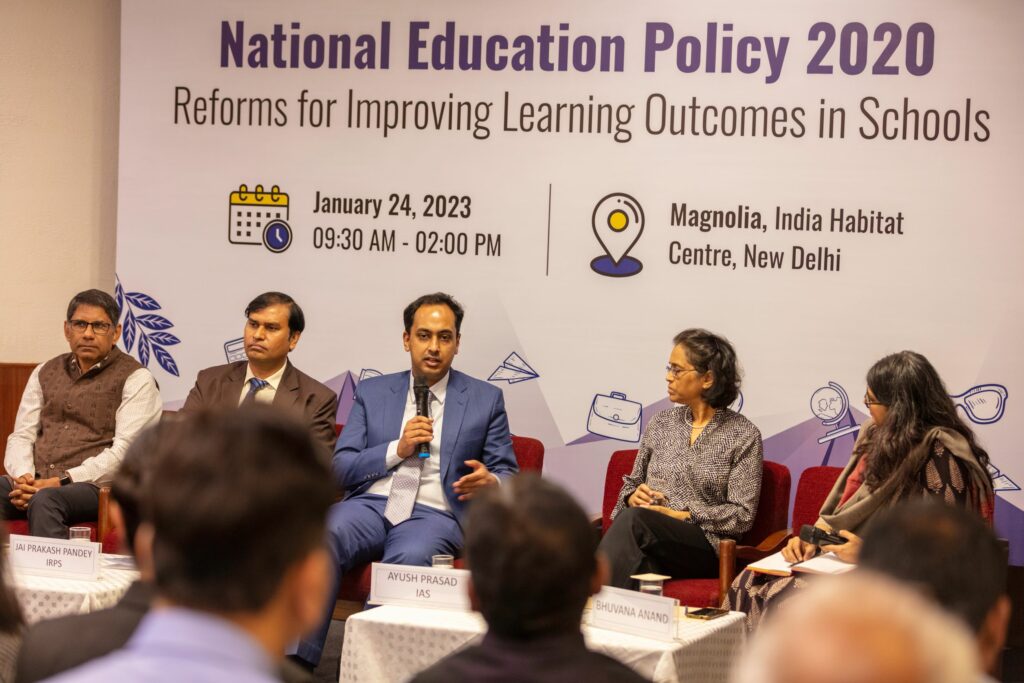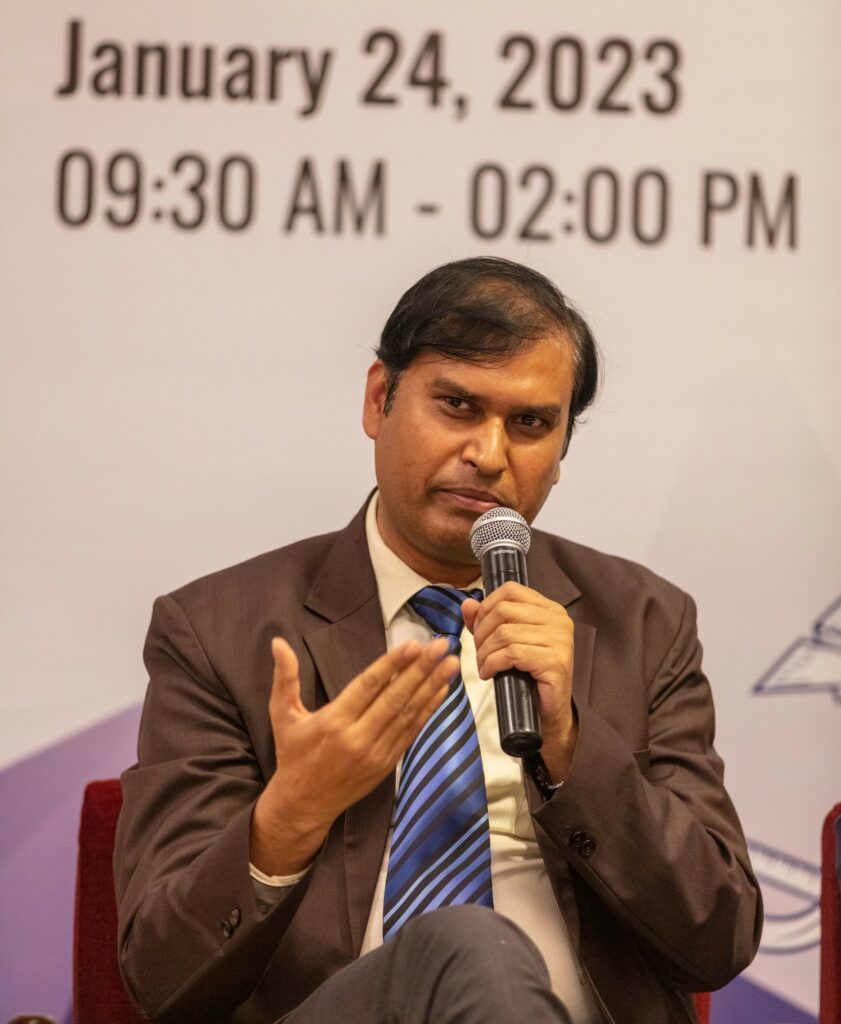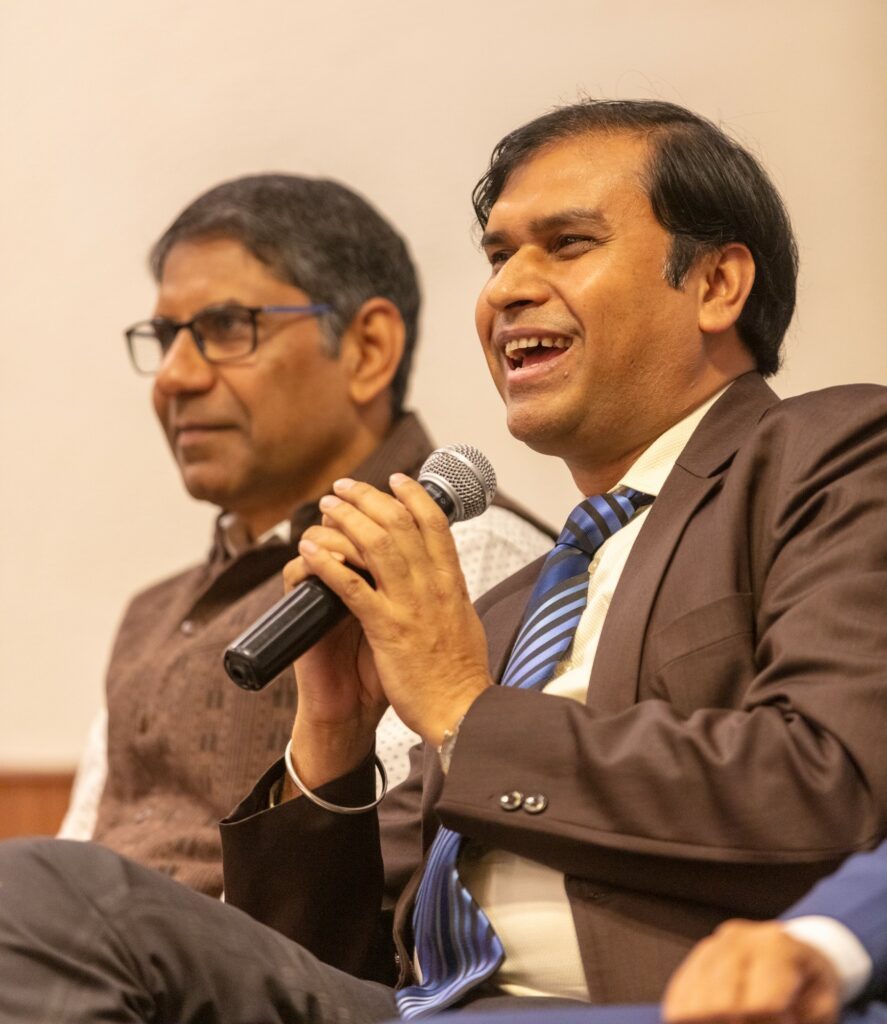 Go Back
Go BackShare
NEP 2020: Looking at Reforms for Improving Learning Outcomes in Schools
By Shivangi Tripathi
Feb 23, 2023
On the occasion of International Day of Education, Central Square Foundation (CSF) hosted a forum to engage with experts from the education sector on key learning-outcome based reforms outlined in the National Education Policy (NEP) 2020. This blog features key highlights from the discussion around NEP 2020' recommendation of setting up a State School Standards Authority (SSSA) to ensure all schools follow certain minimal professional and quality standards for eventual improvement of student learning.
For a long time, the biggest challenge in the Indian education system was a student’s lack of access to education. With the help of multiple schemes and the collective effort of the government and the civil society, India has managed to bridge this gap in schooling. Across India, for classes 1-8, we have achieved a remarkable 100% enrolment rate. The challenge no longer lies in providing access to school education but in providing improvement in quality of teaching-learning.
Currently, the Department of School Education is responsible for providing public education, regulation of education institutions, and policymaking. This leads to conflicts of interest between the different types of schools and overall, ineffective management of the school education system. The National Education Policy (2020) has also highlighted ‘conflicts of interests’ as a core issue in the school education system. It has recommended setting up an independent state-wide body by states/ union territories (UTs) called the State School Standards Authority (SSSA) to ensure all schools follow certain minimal professional and quality standards.
To implement this, the State Council of Education Research and Training (SCERT) will work to create a School Quality Assessment and Accreditation Framework (SQAAF) with the assistance of numerous stakeholders (including schools, education departments, and nonprofits). The framework they create will be focused on establishing standards for schools and will highlight areas that require urgent improvement. All schools will be assessed in accordance with these established standards and will receive information about their performance. All information regarding the various schools will be made public on the SSSA website as well as the websites of each school. This feedback loop mechanism will provide data insights and help the parents in making informed decisions.
While the reform ideas introduced in the NEP 2020 are a great step towards improving learning outcomes of students, there are multiple challenges faced in implementing these. At a recent event organized by Central Square Foundation (CSF), Ayush Prasad (IAS), CEO of the Zila Parishad (Pune) explained how inevitably, independent bodies set up by state governments, converge at the state or district level and lose their independence. Additionally, state governments face resistance from taxpayers who prefer investing in infrastructure like roads and flyovers to be more useful than education.

“Resistance is of multiple types: one of understanding, second is of livelihoods, and a third is also the kind of pressure that may come. In all of this, the best way of navigating this is the mystery: nobody knows what will ultimately come out of this”, Prasad said.
The National Council of Educational Research and Training (NCERT) has to first prepare the framework for all central government schools. With the help of NCERT’s developed framework, SCERT will prepare their own SQAAF. Jai Prakash Pandey (IRPS), Director, Department of School Education & Literacy (Ministry of Education) shared how the central authorities have initiated to create an environment to enable SSSAs.
He said, “We have IT platforms that have been tested in 200 schools. We will recently launch it to all schools and have asked states to set up their SSSAs. There are some challenges but most states have started setting up their SCERT as SSSA.”


An improvement in infrastructure will lead to an improvement in learning outcomes only when a teacher knows how to make use of existing infrastructure to impart learning. The combination of SSSA and competency-based census assessments of both the students and teachers will provide the impetus to transform learning outcomes in India.
Keywords
Authored by
Shivangi Tripathi
Intern, Strategic Communications, Central Square Foundation
Share this on
